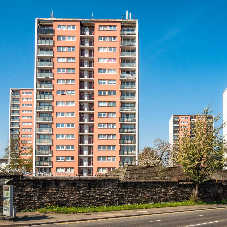With the news that the government has decided to axe the policy designed to ensure that all new homes built from 2016 meet zero carbon standards, I have decided to take a look at what the possible implications are for the wider construction industry. Will projects currently planned now have far less emphasis on energy efficiency? And what do industry professionals think of this move?
Chancellor George Osborne recently announced in his productivity plan ‘Fixing the foundations: creating a more prosperous nation' that the zero carbon buildings policy would be no more. It is fair to assume that this has not gone down smoothly within industry circles, indeed there has been uproar in some quarters. A lot of the anger stems from the fact companies have invested in a long term strategy, which now they claim has been undermined. Rob Lambe, managing director of Willmott Dixon Energy Services, said “Since the original zero-carbon announcement, Willmott Dixon has been supportive of setting a long-term trajectory, enabling industry to invest with confidence. “This announcement seriously undermines industry confidence in government policy and will diminish future investment.”
Those comments echo a lot of the current feelings regarding the announcement. Another issue is will projects currently in the pipeline now take place in their current format? Or will massive alterations have to be made with less focus on energy efficiency?
First AAA rated building in the UK
The Beacon development in Hertfordshire is a prime example of a landmark project that may now just be one of a kind. The Beacon will be the UK's only multi-dwelling EPC A+ energy neutral building, utilising zero carbon and low carbon technologies, a unique design to reduce energy loss, indoor arboretum to create clean air, on-site gym and leisure facilities, 9,191 sq ft of A grade officing and a roof garden offering unparalleled views of Hemel Hempstead and surrounding areas. More buildings of this type were planned, but has the sudden announcement now put a stop to those plans?
The common view seems to indicate that industry professionals are now concerned at the sudden U- turn from the government, especially when so many were behind the original zero-carbon scheme. Moreover, in an open letter to the Chancellor, senior leaders from 246 organisations warn that the policy U-turn has “undermined industry confidence in Government” and will “curtail investment in British innovation and manufacturing”.
It is likely the government will not have taken this decision lightly. However, with long term strategies being planned, and confidence beginning to build, it would seem many have been taken aback by the sudden change of mind. With industry leaders putting pressure on the government to reconsider its position, will it be reintroduced, or is there is zero chance of a low carbon economy?
Related Blog Articles



crop192.png)












